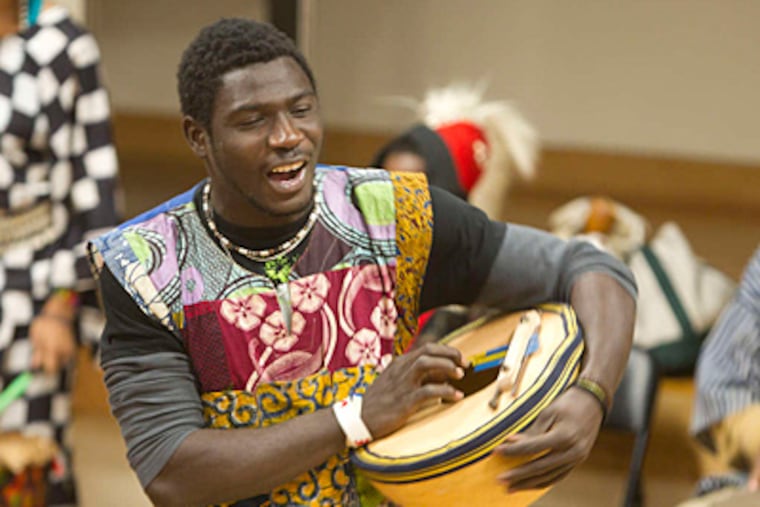
As he placed a kinara on display at the African American Museum in Philadelphia Saturday, Mlanjeni Nduma paused to correct a child confused by the wooden candleholder's resemblance to a menorah.
"No, it's not Hanukkah. It's Kwanzaa," Nduma, who was leading a Kwanzaa celebration at the museum, told the boy. "People say that all the time."
Though Kwanzaa dates to the mid-1960s, the seven-day celebration of African American culture, heritage, and family born out of the black nationalist movement still is unfamiliar to many people, Nduma said.
Even among those who participate in Kwanzaa, "a lot of people say they only celebrate it at public events," he said. "It's hard to get a sense of who actually celebrates it."
On Saturday, he educated attendees about the holiday's origins at the African American Museum's annual Kwanzaa celebration, which resumes Sunday with another presentation by Nduma as well as African dance and drumming, arts and crafts, and a cinema event.
Kwanzaa, which began Wednesday and ends Tuesday, centers on a different principle on each of its seven days: unity, self-determination, collective work and responsibility, cooperative economics, purpose, creativity, and faith.
The holiday is a cultural celebration, not a religious one.
But it borrows elements from religious holidays, Nduma said, including presents (Christianity), candles (Judaism), and fasting (Islam).
Kwanzaa participants aren't supposed to eat during the day, but "today, it's kind of hard to get everybody to fast," said Nduma, who began celebrating Kwanzaa in the 1970s. He encouraged people to give up something else.
Other modifications can be made to Kwanzaa customs, Nduma said. Instead of drinking, celebrators can toss pebbles into a communal cup as they share memories of deceased loved ones. If a black candle can't be found for the kinara, a white one could be colored with shoe polish.
While honoring the holiday's history is important, "you have to bend your Kwanzaa to where you are," Nduma told attendees.
Just nine people were in the audience at the start of his presentation. But the crowd grew over the course of the morning, with more than 60 people present after the kinara was lit and drummers took the stage.
Among them was Desiree Allen of Philadelphia, who has been celebrating Kwanzaa for five years.
"It's a reflection of who I am and all the things I believe in," Allen said. She celebrates at home by reading with her daughter, 13-year-old Jahda.
For Michelle Schofield, the holiday is about "the values, the principles, that you're supposed to practice all year long."
Schofield, of Secane, didn't learn about Kwanzaa until several years ago, when her son started attending Imani Education Circle Charter School.
Kwanzaa isn't more widely celebrated because of "lack of education," she said. "I think they think it's a religion, and it's not."